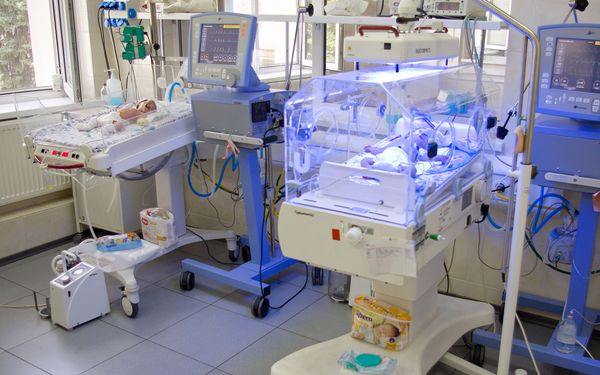A bill called “National Program to Stimulate Adoption in Ukraine” was presented toward the end of last week. Its ideas were supported by the Adoption Center at the Ministry of Education and Science of Ukraine and the all-Ukraine volunteer organization “Society of Equal Opportunities.”
Adoption is the best option for children who have lost their parents. Under the law, Ukrainian nationals have priority adoption rights, compared to foreigners. An orphaned child is registered at the place of residence for a year and can be legally adopted by a foreigner only after this term expires. Foreigners seem to prefer adopting Ukrainian children, even if they suffer from serious afflictions. According to Yevheniya Chernyshova, director of the Adoption Center at the Ministry of Education and Science of Ukraine, foreigners annually adopt some 2,000 Ukrainian children, compared to an average of 250 adoptions by Ukrainians. On the one hand, officially there are no adoption waiting lists in Ukraine because the “market demand” is markedly lower than supply (there are 24,000 children who can — and need — to be legally adopted). On the other hand, adoptive families may insist on pretty girls with big eyes and curly hair, aged up to three years, meaning that they can spend several years waiting for their choice. Surprisingly, only one in ten adoptive parents wants a boy. Psychologists explain this statistic by the adoptive parent/child conflict fear factor. Girls are generally believed to cause fewer problems.
Under the adoption law, married couples as well as single men and women are eligible, although Ms. Chernyshova says that they have never received an application from a single man. The difference in age between children and adoptive parents must not exceed 45 years and the adoptive parent(s) must earn enough to sustain the adopted child. There are health qualifications for the adoptive parents, although this clause does not mean that a physically handicapped individual cannot adopt a child. A total of 878 adoption cases are currently being processed in Ukraine. An adoption can be annulled on the biological parents’ initiative or in cases where adoptive parental rights and responsibilities have been severed. In both cases a court of law has the final say. Statistically, some 300 families reject their adopted children every year, mostly explaining that they can’t establish normal contact with the children; less often the reason is the discovery of the child’s previously concealed afflictions.
How can the proposed program help parentless children? How can the number of adoptive parents be increased in line with this program? The initiators of the idea believe that the central budget should envisage such expenditures in order to solve the problem of orphaned children and channel most of these appropriations into training for prospective adoptive families and their psychological and medical support. This support is supposed to be provided once an individual becomes aware of his/her need to assume full responsibility for adopting a child and its upbringing and education. According to the new program, officials of education departments that deal with adoption questions must be relieved of all irrelevant responsibilities. More often than not adoptive parents are couples who cannot have children for one reason or another. They develop a certain stereotyped attitude to the future adopted child. In conversations with psychologists it often transpires that the appearance and age of the child are not that important to the adoptive parents, and that another type of child may well prove to be dearly loved and long-awaited.
Problems that arise between children and adoptive parents are perceived by both sides in a much sharper and more dramatic way than in conventional families. It is very important for adoptive parents to be sure that they will be provided with professional consultations in time of need, that their children will also be helped by professionals during the period of adjustment to the new conditions (after time spent at a boarding school or children’s home, or even with another family). Such families may also receive one-time or regular budget payments. But in this case it would be necessary to ensure against abuses. The authors of the new program believe that funds can be found in the budget expenditure items intended for boarding schools, orphanages, and even foster and group homes. After all, children who live in foster and group homes are like guests until they come of age, after which time these children can no longer rely on support from their foster parents, who are relieved of all parental rights and responsibilities under the law. They are obliged to take into their families new, small children and act as their moms and dads.



